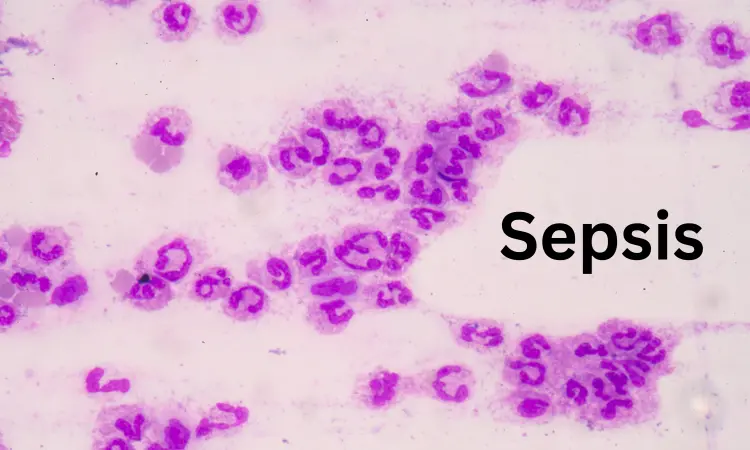- Home
- Medical news & Guidelines
- Anesthesiology
- Cardiology and CTVS
- Critical Care
- Dentistry
- Dermatology
- Diabetes and Endocrinology
- ENT
- Gastroenterology
- Medicine
- Nephrology
- Neurology
- Obstretics-Gynaecology
- Oncology
- Ophthalmology
- Orthopaedics
- Pediatrics-Neonatology
- Psychiatry
- Pulmonology
- Radiology
- Surgery
- Urology
- Laboratory Medicine
- Diet
- Nursing
- Paramedical
- Physiotherapy
- Health news
- Fact Check
- Bone Health Fact Check
- Brain Health Fact Check
- Cancer Related Fact Check
- Child Care Fact Check
- Dental and oral health fact check
- Diabetes and metabolic health fact check
- Diet and Nutrition Fact Check
- Eye and ENT Care Fact Check
- Fitness fact check
- Gut health fact check
- Heart health fact check
- Kidney health fact check
- Medical education fact check
- Men's health fact check
- Respiratory fact check
- Skin and hair care fact check
- Vaccine and Immunization fact check
- Women's health fact check
- AYUSH
- State News
- Andaman and Nicobar Islands
- Andhra Pradesh
- Arunachal Pradesh
- Assam
- Bihar
- Chandigarh
- Chattisgarh
- Dadra and Nagar Haveli
- Daman and Diu
- Delhi
- Goa
- Gujarat
- Haryana
- Himachal Pradesh
- Jammu & Kashmir
- Jharkhand
- Karnataka
- Kerala
- Ladakh
- Lakshadweep
- Madhya Pradesh
- Maharashtra
- Manipur
- Meghalaya
- Mizoram
- Nagaland
- Odisha
- Puducherry
- Punjab
- Rajasthan
- Sikkim
- Tamil Nadu
- Telangana
- Tripura
- Uttar Pradesh
- Uttrakhand
- West Bengal
- Medical Education
- Industry
Delayed time-to-antibiotics may increase 28-day mortality in sepsis patients with respiratory or CV dysfunction

China: A study published in the Journal of Critical Care has concluded Septic patients with respiratory or cardiovascular dysfunction are associated with the harms of delayed time-to-antibiotics.
It is already known that sepsis is the leading cause of mortality and morbidity among patients admitted to the ICU. Early antibiotic treatment is recommended to control infection.
The current guideline recommends antimicrobials administrated within 1–3 hours of sepsis recognition, but it remains controversial.
The controversy exists between time-to-antibiotics and clinical outcomes in patients with ICU onset sepsis.
Considering the above background, Wenhan Hu and colleagues from the Department of Critical Care Medicine did a study to determine the questions given below:
What is the association between time-to-antibiotics and the prognosis of patients with ICU onset sepsis?
Which sepsis phenotype poses a high death risk associated with delayed time-to-antibiotics?
The study points include the following:
- The MIMIC-IV database was used to identify patients who had ICU onset sepsis.
- The primary exposure was measured from recognition of sepsis to the first antibiotic administered: time-to-antibiotics.
- Latent profile analysis (LPA) identified phenotypes of sepsis based on individual organ failure scores derived from SOFA (Sequential Organ Failure Assessment).
- Interactions between phenotypes and time-to-antibiotics on 28-day mortality were explored.
- The final analysis had 6246 patients.
- The overall 28-day mortality was 12.7%.
- Delayed time-to-antibiotics increased 28-day mortality with HR 1.12.
- The researchers identified four phenotypes of sepsis:
Phenotype 1: Respiratory dysfunction
phenotype 2: Cardiovascular dysfunction
phenotype 3: Multiple organ dysfunction
phenotype 4: Neurological dysfunction.
- The adjusted HR of 28-day mortality in phenotypes 1 and 2 was 1.16 and 1.06, respectively.
To conclude, Septic patients with respiratory or cardiovascular dysfunction were associated with the harms of delayed time-to-antibiotics.
The phenotypes showed different patterns of organ failure and responded differently to delayed time-to-antibiotics.
The researchers said that our study’s findings indicate that identifying and targeting specific phenotypes of sepsis may be fundamentally crucial for the design of future clinical trials.
Further reading:
Hu, Wenhan, et al. “Identifying High-risk Phenotypes and Associated Harms of Delayed Time-to-antibiotics in Patients With ICU Onset Sepsis: A Retrospective Cohort Study.” Journal of Critical Care, vol. 74, Elsevier BV, Apr. 2023, p. 154221. Crossref,
BDS, MDS in Periodontics and Implantology
Dr. Aditi Yadav is a BDS, MDS in Periodontics and Implantology. She has a clinical experience of 5 years as a laser dental surgeon. She also has a Diploma in clinical research and pharmacovigilance and is a Certified data scientist. She is currently working as a content developer in e-health services. Dr. Yadav has a keen interest in Medical Journalism and is actively involved in Medical Research writing.
Dr Kamal Kant Kohli-MBBS, DTCD- a chest specialist with more than 30 years of practice and a flair for writing clinical articles, Dr Kamal Kant Kohli joined Medical Dialogues as a Chief Editor of Medical News. Besides writing articles, as an editor, he proofreads and verifies all the medical content published on Medical Dialogues including those coming from journals, studies,medical conferences,guidelines etc. Email: drkohli@medicaldialogues.in. Contact no. 011-43720751


